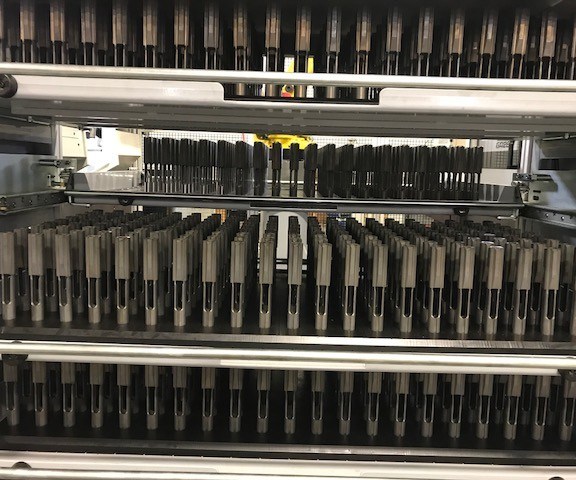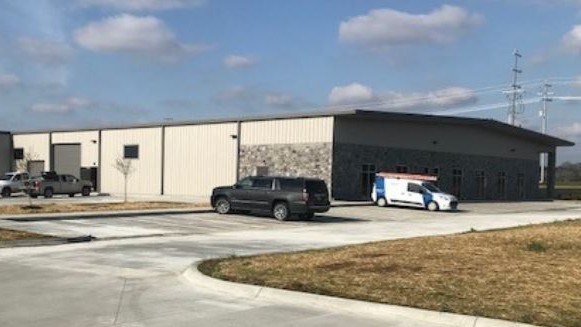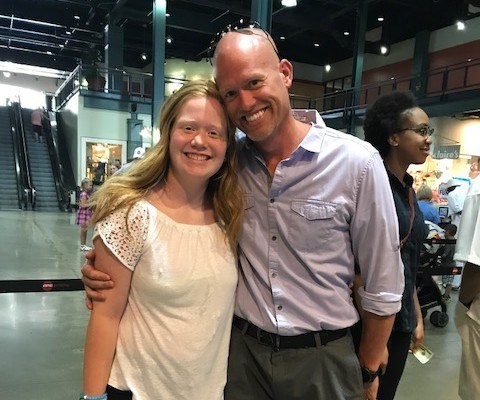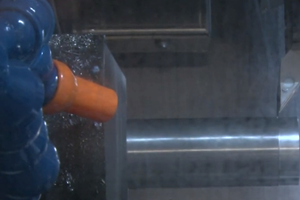Lights-Out Operation Enables Work/Life Balance
Overwhelmed with too much work, a former salesman in the machining industry started his own business, purchasing and installing production machines that allow him to run lights-out production and, consequently, see his family more.
As a salesman in the machining industry, particularly of firearms, Mike Dowell was facing 80-hour work weeks that left little time for anything else. He loved what he did, and he was good at it, but it was taking a toll on him and his family.
In 2013, Mr. Dowell’s now fiancée, Jodie Mixa, told him he should start his own company. She had been in the manufacturing industry for many years as the president of a machine shop, so she knew the “drill” and also had experience with accounting. Recognizing Mr. Dowell’s determination, a quality that has led him to compete in Spartan championships and several marathons over the years, she bought him QuickBooks, and a week later he started his own company.
Mr. Dowell had the connections and a thorough understanding of the industry. He knew there was a high demand for quality, discrete parts, so he bought a repo CNC machine and shipped it out to San Diego, California, where he planned to start his business.
“I surrounded myself with good people, and good things happened,” he says. “My business partner, Jodie, takes care of all the accounting and customer service, and my other business partner, Tim Hertel, is the operations manager and is very good with systems. With them, we made a nice profit in the first six months, and over the course of another six months we doubled our profits.” It was at this point that they dubbed their business Axem Distributing Inc.
Three months later, a family tragedy struck: Mr. Dowell’s youngest daughter, Emma, lost her mother. Knowing Emma would need her grandmother in this time of grief, he changed his business location plan from San Diego to Northern Kentucky (where Emma’s grandmother lives) and reshipped his machine. Here, Mr. Dowell opened a facility of 5,000 square feet and began manufacturing. “Initially, we had two Swiss-type machines and a mill, but at the end of the day, what I wanted was a machine that would run lights out,” he says.
In 2016, Mr. Dowell had the money to invest in new equipment, so he started searching for the right machine and process. “At that time, I did not know about Eurotech Elite and was thinking another machine tool brand cell would be my choice,” he says. “However, the local Eurotech distributor, Dave Hornsby, asked me to visit a local Eurotech customer who had six of his machines running in the shop that he ran with his wife. I saw the machines and was impressed. His Eurotechs were producing finished product, lights out in a single handling, without damaging any parts. The subspindle shift for Op. 20 was amazing. This setup was really working. I knew this was exactly what I had been looking for. I knew of no other shops with a process that came close to this.”
Mr. Dowell purchased three Eurotech (71-mm) multi-axis turn-mill machines. “With the distributor’s help, I set up the machines for our M16 carrier and bolt parts,” he says. “We run an eight-hour shift, and then after the day shift, we run lights out all night. I come in the next morning, and the machines are still running parts to print. These mutlitasking machines allow for more family time, they allow me to do more things with my time and still make money.”
With new technology, Axem grew even faster. “The lights-out technology that these machines enable put me on the path to reach my vision, and I know they will get me to my ultimate goal, which is 100 Eurotechs running lights out. We have been successful. We reinvest all the money back into the company, and I can share the profit with our great team. We can be competitive because we have fewer employees and lower overhead,” Mr. Dowell says.
Then in 2017, it was decided a new corporate office was needed in order to expand operations. A 40,000-square-foot building in Gallatin, Tennessee, was built, and by April 2018, the company had settled in and also added two Eurotech triple-turret Multiplas. “I am very proud of what we have done with these machines; anyone who visits is blown away by what we are doing,” Mr. Dowell says.
Only five minutes from this facility is a state park where Mr. Dowell trains two hours a day. “We get tooling changed out in the morning, and then I go for a six- to 12-mile run on my lunch break,” he says. “I like to be active and am always training for another Spartan race.”
This same mentality is how Mr. Dowell runs his shop. He keeps it pristine, disciplined and organized with a process that allows lights-out production without any of the many problems that manufacturers sometimes face. His process takes into consideration tool changes so lights out is never interrupted, and he has also designed a coolant system that feeds the machine 24/7 and is presently designing a way to keep oils cool in the machine, all without human intervention.
The building in Tennessee is also designed to run lights out. “From an auto fill system for coolant to a robot I’m designing that will empty chips during the day and night, I’m keeping the machines running without human intervention,” Mr. Dowell says. “The machines running lights out with little intervention allows me to take care of the sales side of the business.”
Mr. Dowell’s philosophy has a lot to do with his success. “Address what-ifs and checkmarks before they rear their ugly head,” he says. “A lot of machinists with experience of at least 25 years know what can go wrong with lights-out machining. My philosophy is why not go ahead and make a list of these potential pitfalls and check them off your list so you can eliminate them and avoid possible failures. For instance, turrets can’t index unless they are already home. I’ve never crashed a machine because the parameters to prevent this are in place.
“It’s too tough to find good people who really want to work. I invest in equipment and technology so the few people I hire are well rewarded,” Mr. Dowell says.
Axem has so little overhead, the company is able to make parts cheaper than competitors. “Winning bids is easy for us because of our production capability from lights-out technology. With it, we don’t have close to the overhead the other companies have,” Mr. Dowell says. “We are able to machine with more quality, and we have a better-looking part. Other companies have to hand grind and polish, but we don’t have to because of this technology.”
Axem Distributing Inc., 615-850-7960, axemdist.com.
Related Content
Getting More Production From Swiss Turning Centers
Buying a new CNC Swiss turning center is a substantial investment. For the best return, look closely for capabilities that enable the best utilization of the machine.
Read MoreA German Machine Tool Builder’s “Second Push” Into the U.S. Market
Spinner recently has taken strides to boost its presence, service and support in the United States as well as Canada and Mexico for its multifunction CNC lathes and milling machines.
Read MoreVideo Tech Brief: Twin-Turret, Twin-Spindle Lathe Machining
This machine model features roller linear ways to accommodate low-frequency vibration technology to minimize chip size.
Read MorePrecision Machining Technology Review: September 2024
Production Machining’s September 2024 technology showcase includes some of the latest technology from Expand Machinery, Paperless Parts, Monaghan Tooling Group, Walter USA and more.
Read MoreRead Next
High Mix, Low Volume Shop Redefines Throughput for Aerospace Parts
Many shops struggle with trial and error, but some companies are lucky enough to discover what works best for their application the first time around.
Read MoreDo You Have Single Points of Failure?
Plans need to be in place before a catastrophic event occurs.
Read More5 Aspects of PMTS I Appreciate
The three-day edition of the 2025 Precision Machining Technology Show kicks off at the start of April. I’ll be there, and here are some reasons why.
Read More










.jpg;maxWidth=300;quality=90)








.jpg;maxWidth=300;quality=90)







